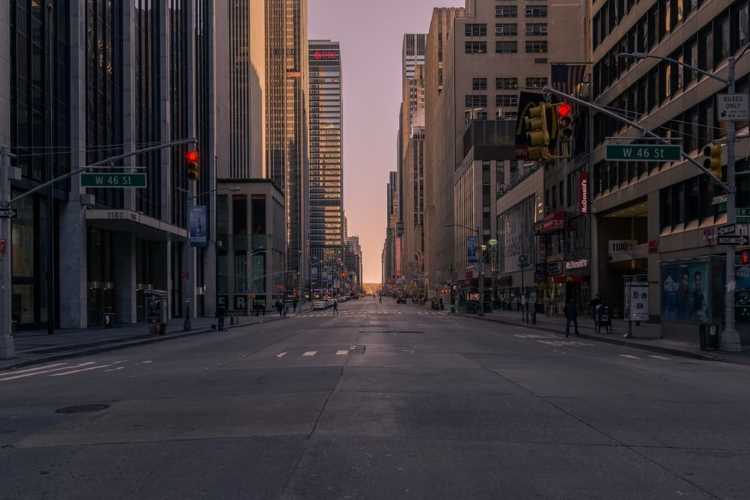
The bustling streets of world capitalist hubs such as New York, Tokyo, London, Paris, Dubai, and Mumbai wear a deserted look. Industrial production has come to a grinding halt, pushing the world into the most severe economic crisis since the Great Depression. The coronavirus seems to have done the most unimaginable — it has shaken the world’s faith in capitalism.
The severity and impact of the outbreak is yet to be fully understood. Last month, the IMF estimated 25 million job losses across the globe due to the lockdown in China. The picture has become gloomier in the next one month. The US is expected to lose 15.6 million jobs against the earlier estimate of 5.8 million. China could lose 9-10 million jobs in 2020 and India at least 25 million informal sector jobs and 5 million formal sector jobs. The numbers will rise depending on the duration of the lockdown. European Union, Latin America, East and South East Asia, and Australia are also facing a major employment crisis.
It all started with the lockdown in China, which broke the global supply chain. Several years of globalisation has made China the hub of all industrial activity. The world is either dependent on China for the final products, or intermediate goods without which end production and distribution of goods is virtually impossible. For example, an Australian farmer cannot reach the market without packing material from China. As the coronavirus spread across the world, most countries went in for a lockdown and industrial activity across the world has been stalled.
READ: Economy and governance in the time of coronavirus
Covid-19 is not as deadly as EBOLA, SARS or Nipah. It is likely to affect 60% of the population in hotspots, out of which 20% will need hospitalisation and only 5-10% will require intensive care. The mortality rate of the disease is just 2-3%. What makes the virus deadly is the pace of transmission, that results in the overflowing of hospitals and also the longer duration of the hospital care needed — a Covid-19 patient needs 11-30 days of hospital care. Unlike EBOLA and other pandemics, Covid-19 affects people in the upper and middle rungs of the society the most. The lockdown will not affect them initially as their kind of work can be done from their homes. But for the majority of world population, the lockdown means loss of livelihood, hardship and absolute poverty.
The neoliberal propaganda that only the market forces can assure lasting welfare of people has collapsed in the face of the coronavirus outbreak. The hire and fire policies encouraged by the new capitalism will lead to the destruction of the world economy in the absence of social security nets in most parts of the world. The outbreak threatens to give a devastating blow to the global labour force and labour practices in market economies. Decent salaries and social security are the privilege of a few in the formal sector. Most of the workers receive hourly or daily pay. The lockdown has thrown millions of labourers out of employment without any social security.
READ: Good beginning by govt, RBI; but much more needs to be done, says Dr Charan Singh
In the US, 3.3 million people have registered for unemployment benefits by the third week of March. Credit Suisse predicts that a large number of Americans won’t be able to pay their rents and will need food coupons for survival. Most world economies face a similar crisis. Even if the governments ask employers to pay during lockdown, it is impossible for them to sustain it over a long period. If cash flow dries up, cutting labour cost is the first resort for most businesses. In market economies, the states do not have the capacity to take the responsibility of a large number of people. Countries like Australia is witnessing large-scale job losses. People who used to survive doing odd jobs are now unemployed and are finding it difficult to pay rent and other bills. Events unfolding in the developed world point to misery unseen in several generations.
When it comes to the informal and unorganized sector, the outlook is bleak. The unorganised sector employs the majority of the workforce in India and elsewhere in the world. They work as household maids, street vendors, sanitary workers, and support staff in industries. They receive daily wages, work without leave and social security. They make the lowest segment of supply chains, work in farms, produce and distribute goods. The lockdown has destroyed their livelihood and pushed them into abject poverty. Their numbers are staggering beyond any stretch of imagination.
READ: In depth: Seven ways coronavirus outbreak will change human life
The empty streets in Italy, Spain, India and West Asia hide the misery of the street vendors. Where did they disappear? How do they manage their basic needs and healthcare during this medical emergency? What happened to the millions of homeless people who used to live on the streets? The plight of migrant workers in Indian cities illustrates the unequal life in the world’s fifth largest economy. They provide cheap labour to factories, households, shops, and restaurants. Without income, they cannot survive in the cities even for a week. Returning home was the only way of survival. During major crises, the cities abandon them.
While China faced the unpredictable onslaught of coronavirus, the rest of the world had two-three months to come up with a measured response to tackle the health and economic impacts of the pandemic. The approach adopted by most national governments — they ignored hunger and poverty and went on to focus on economic and health emergencies — reveals a lack of understanding of the world’s history. Hunger and poverty that follow pandemics kill more people than the disease itself. The ineptitude of the capitalist world shows how inadequate the market mechanism is in the face of a major crisis.
Resmi Bhaskaran is a development economist based in Manipal, Karnataka.
